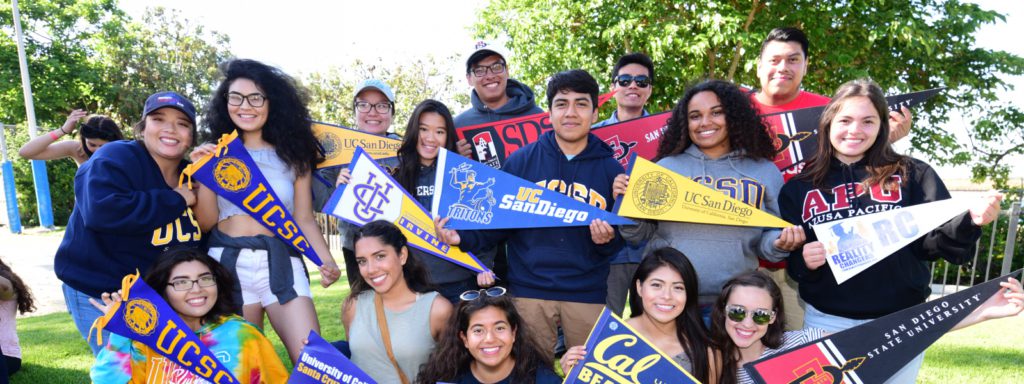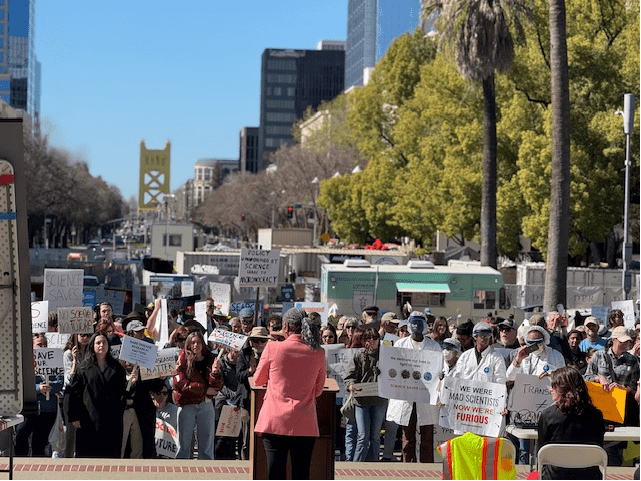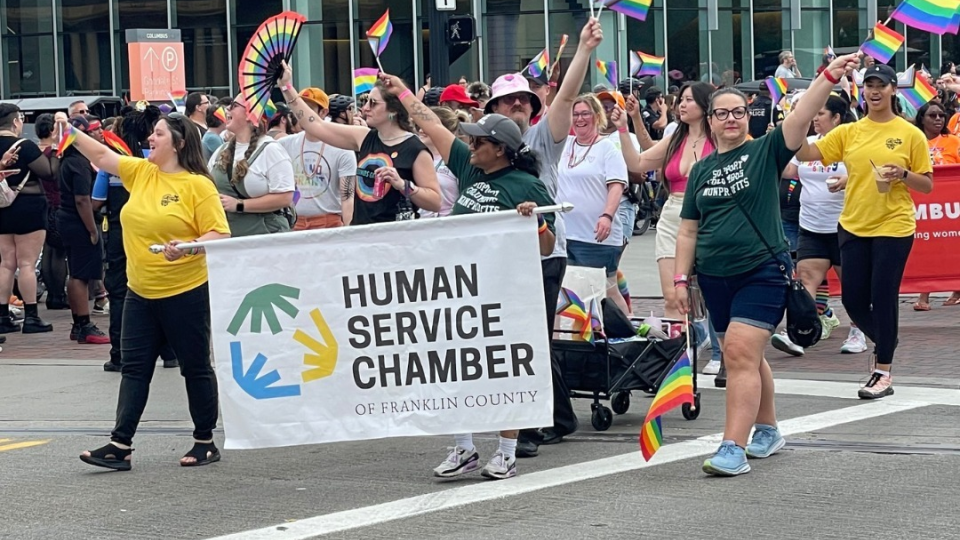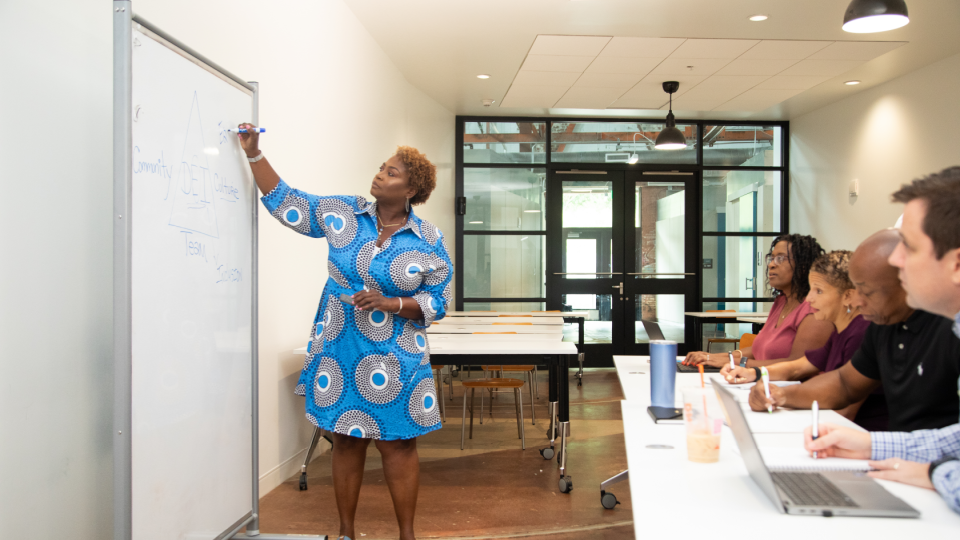Statistics show that approximately 56% of undergraduates nationally are first-generation college students (neither parent has bachelor’s degree). Reality Changers, an Independent Sector member based in San Diego, aims to transform the lives of youth from underrepresented backgrounds by providing them with the academic support, financial assistance, and leadership training to become college graduates and leaders for positive change in their schools, communities, and families.

We talked with Tamara Craver, Reality Changers President and CEO, about the organization’s mission to prepare youth to become first-generation college graduates and agents of change in their communities.
IS: The story about the founding of Reality Changers is pretty interesting. Could you give us a quick overview, and tell us what drew you to the organization?
TC: Sure! Reality Changers was founded in 2001 by Christopher Yanov. The organization was started in a church with just a handful of 8th and 9th graders. Our founder will tell you that there were times when he wasn’t sure whether the program was going to make it. The kids just had so much going on in their lives, and he was worried about them making it through high school, let alone graduating from college.
Piece-by-piece, student-by-student, it grew from there. The kids that were in the program were really invested and more students wanted to get involved. The program started pulling in more volunteers, receiving more funding, and serving more youth. Today, we serve 8th through 12th graders, college students, and even early-career professionals.
I joined in 2019. I was really excited to see that Reality Changers starts working with youth in the 8th grade. By starting earlier than other college access organizations, our students are able to really build a strong foundation of soft skills before they even start high school. This makes them more likely to be successful in high school and, ultimately, in college and beyond.
IS: Your vision states “we envision a future where all young people have equitable access to thrive in education and to create lifelong pathways for success.” How many students have you worked with in Southern California, and what are your plans to reach the ultimate goal of equitable access to education?
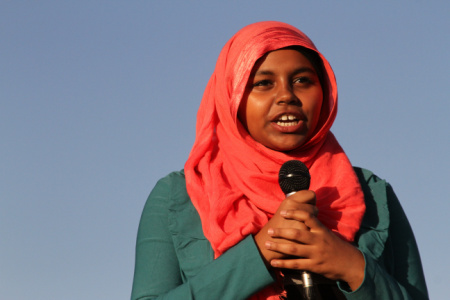
TC: More than 3,000 students have graduated from Reality Changers. In my view, that’s the first piece of achieving education equity for all – providing services like ours. Our program specifically supports youth from communities that are typically underrepresented on college campuses. We’re planning to grow and help even more youth become first-generation college graduates. By 2025, we plan to serve more than 1,000 students annually. My big goal is to make this not just a regional, but a national program.
The other piece is advocacy. We can help students get to college, but schools at all levels can do more to support first-gen youth. This is why it’s important for us to be advocates for change. Our leadership spends time talking with other nonprofits, colleges and universities, employers, government, and the community about our lessons learned and where we see room for growth. I like facilitating connections between different sectors and helping everyone collaborate to solve problems. Teamwork makes the dream work!
IS: You have a number of programs in place to help ensure that your students are successful in college. Can you give us a succinct overview of those?
TC: Reality Changers has a three-tiered model. First, we start with 8th through 11th graders. For these students, we focus on academic success and building soft skills like leadership, goal setting, and time management.
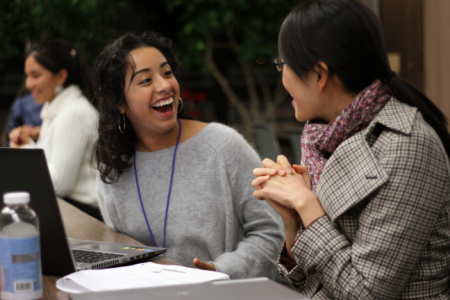
Second, we work with 12th graders. We help students apply to college, get financial aid, and prepare for life on campus. The goal for 12th graders is to make sure that they get into the 2- or 4-year school that’s the right fit for them — and that they graduate with minimal debt.
Third, we support college students and graduates. We help students stay in college with academic advising, on-campus resources, and general college and financial aid troubleshooting. Once they graduate, we’re there to help with resume review, career mentorship, networking, and more. We serve our alumni as long as they need our help. For our older graduates, we’ve even led home-buying workshops!
IS: How do you go about identifying students to participate, and what requirements must they meet?
TC: All students must be first-gen (neither of their parents has graduated from college) and prove an economic need. There are two main ways that someone can join the program:
- They can join in the 8th grade. For 8th graders, we’re really trying to identify the high-potential students that might not have ever thought of themselves as future college graduates. We have a special program for students with GPAs at 2.5 or below. We build excitement about Reality Changers and get them to start thinking about college. If they bring their GPAs up over the course of the program, then they can formally join Reality Changers as 9th graders.
- Students can apply to join our program during high school. These young people must meet GPA requirements and write an essay about how they think Reality Changers might make a difference in their lives. These students are often, but not always, youth who have already been thinking about college but who don’t know how to get there. They usually have a family member, a friend, or a counselor refer them to our program.
IS: Can you give us an example of a success story with one of the students you are particularly proud of, and how they became a community agent of change?
TC: I’m proud of all of them. They all choose different paths and are doing some incredible things!
One that comes to mind for me is Rosa, who graduated from Reality Changers in 2014 and attended the University of San Francisco, where she studied politics. She came back to San Diego and was doing community organizing in her neighborhood. One of the things she advocated for was the Youth Opportunity Pass – free public transportation for San Diegans under the age of 18. Thanks to her hard work, the pass is rolling out this month! And now Rosa is a transportation policy advisor for the County!
Another good one is Genemo, who graduated from the program in 2011 and went to San Diego State University. He opened up a restaurant in the community. It’s a delicious chicken sandwich place and they’ve been doing really well – with lots of media buzz– even though they opened up during the pandemic in 2020. A few of his employees have been Reality Changers students and graduates, as well. It’s wonderful to see him ‘paying it forward’ to young people from the community.
IS: Independent Sector strives to strengthen civil society and ensure all people in the United States thrive, and our organizational strategies are results-centered and racial equity-focused. As a member of our Independent Sector community, talk about how the work of Reality Changes dovetails with our mission and objectives.
TC: For us, we know that college can literally change realities. Workers with college degrees earn about 40% more annually than workers with high school diplomas/GEDs. So, our work helps to address economic inequalities, giving young people, their families, and their communities a chance to thrive.
Additionally, part of our mission is to create “Agents of Change.” This starts with community-service projects in high school and continues when our graduates come back to their communities to educate, advocate, and collaborate; bringing more people, especially diverse people, into the civic discourse, and strengthening civil society.
Everything we do is results-centered. The goal is always to help first-generation youth graduate from college. We have to be thoughtful about the specific strategies and support systems that are going to help each individual student reach that target.
And, our programs are, by their nature, racial-equity focused. We are a diverse staff that serves a diverse student population. Representation matters. We serve as role models that our students can identify with, leading the way for our youth. 87% of our students are BIPOC. So, helping them to become college graduates is all about addressing racial inequities in higher education and the workforce.
Read about Reality Changers. The top photo is courtesy of the nonprofit organization. Learn about Independent Sector membership.
